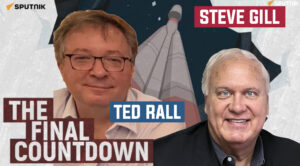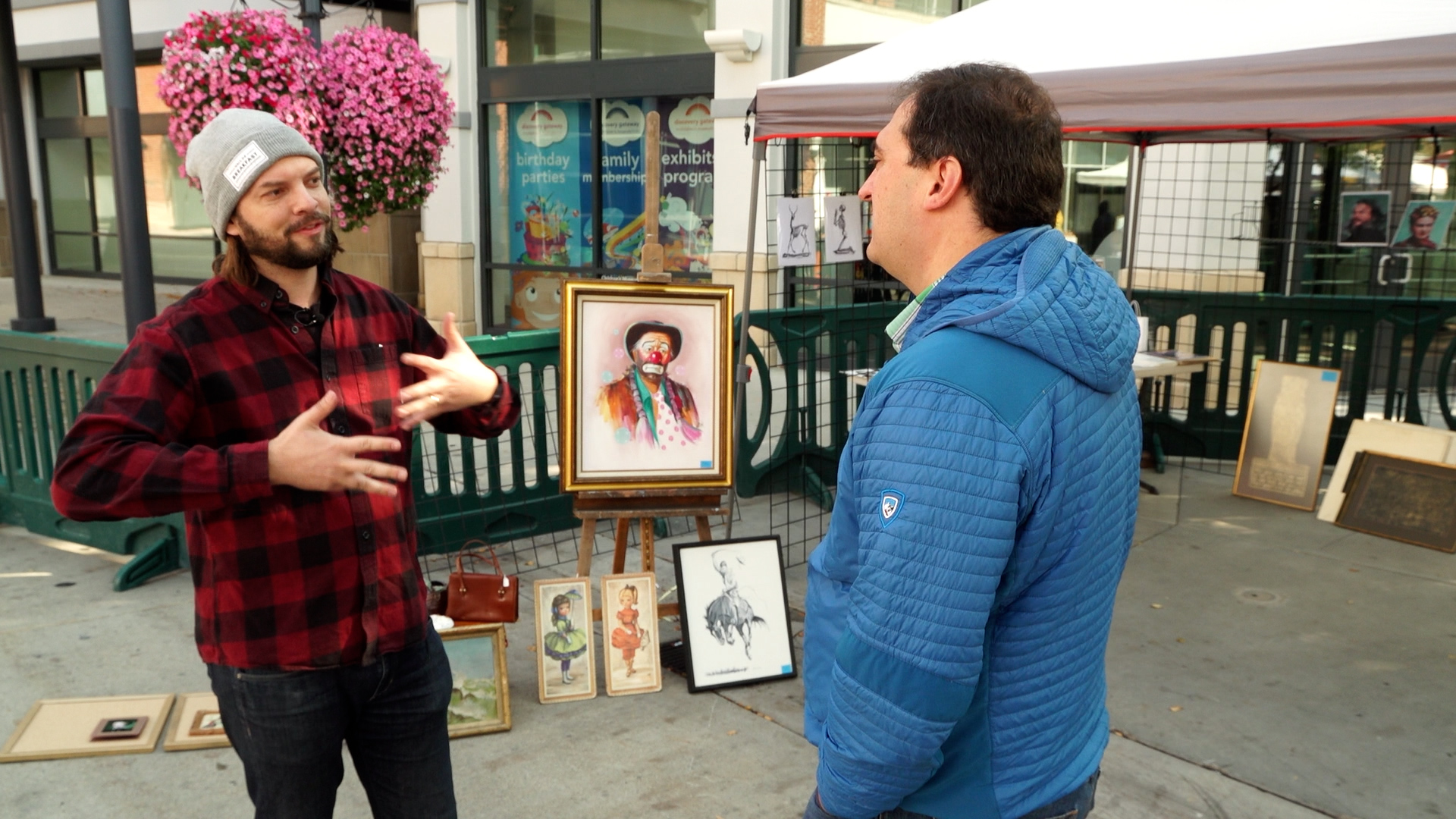 The United States is one of the most politically polarized countries in the world. Because effective lawmaking requires bipartisanship and members of Congress are, like their constituents, at their most ideologically divided point in a half century, cooperation is in increasingly short supply. As a result or, more precisely non-result, the U.S. Congress passes fewer bills every year.
The United States is one of the most politically polarized countries in the world. Because effective lawmaking requires bipartisanship and members of Congress are, like their constituents, at their most ideologically divided point in a half century, cooperation is in increasingly short supply. As a result or, more precisely non-result, the U.S. Congress passes fewer bills every year.
There is, however, one consistent area of agreement on Capitol Hill: defense spending. Each year for the past six decades, the massive National Defense Authorization Act—Washington-speak for the federal defense spending bill has passed with overwhelming bipartisan support. Defense appropriations are so sacrosanct that the press often describes the NDAA as “must pass”; it is routine for Congress to add in hundreds of millions of dollars of extraneous spending that the Pentagon does not want or request.
In the U.S. Congress, even “antiwar” voices support the military. Obama’s 2008 campaign was primarily predicated on his opposition to the U.S. invasion and occupation of Iraq. Yet even his GOP opponent John McCain didn’t care call out Obama on the fact that when he had six chances to vote on the Iraq War—he wasn’t in the Senate yet when it voted on the measure authorizing President George W. Bush to attack the government of Saddam Hussein—he voted to send the cash each time. Bernie Sanders has repeatedly voted to fund the military and sending weapons for wars being waged by U.S. proxies like Israel and Ukraine.
Vice President Kamala Harris, whom Republicans describe as Marxist, socialist and communist, is thoroughly committed to the cult of American militarism. “As Commander-in-Chief, I will ensure America always has the strongest, most lethal fighting force in the world,” she said in Thursday’s nomination acceptance speech at the Democratic National Convention.
The idea that military expenditures are “must pass” relies on the assumption that the U.S. faces existential threats to its safety and/or sovereignty. This is crap.
As Statfor’s classic 2011 assessment of the United States and its geopolitical position noted: “The American geography is an impressive one.”
Consider Russia. It has thousands of miles of land borders, most of it without significant natural barriers like mountain ranges or large bodies of water to deter a potential invader, millions of square miles of fairly flat lands that can quickly and easily be traversed, with numerous neighbors that are hostile and have posed a historical threat. Given its situation, Russia’s rulers have traditionally relied on friendly buffer and vassal states around its perimeter.
“The U.S. Atlantic Coast possesses more major ports than the rest of the Western Hemisphere combined,” Stratfor observed. “Two vast oceans insulated the United States from Asian and European powers, deserts separate the United States from Mexico to the south, while lakes and forests separate the population centers in Canada from those in the United States. The United States has capital, food surpluses and physical insulation in excess of every other country in the world by an exceedingly large margin.” Canada and Mexico are friendly vassal states.
“Red Dawn” was just a movie. Gun nuts who think they’ll need AR-15s to arm a Resistance against alien invaders are deluded. No one wants to invade us. No one wants to take away our freedoms.
No one can.
We are acting like the hippopotamus. Hippos are the most dangerous land animal on the planet, killing 500 human beings every year. They’re nervous and high-strung because they rapidly evolved from a much smaller creature that made easy prey. Poor things! They don’t realize that they’ve become huge, grown fearsome teeth and no longer need to be aggressive and territorial. Like the hippo, the U.S. started out small and vulnerable to aggressors like England, which re-invaded in 1812. But things have changed for both the hippo and us. Can’t we be smarter than a hippo?
The U.S. has, like other countries, faced raids like the Pearl Harbor attack and cross-border incursions from Mexico in the 19th century. In a now largely-forgotten episode, two of the Aleutian islands were occupied by Japan during World War II, before Alaska became a state. Non-state terrorists have struck the contiguous 48 states, as on 9/11. But none of those incidents, though violent and disturbing, represented anything close to an existential threat. Most other countries, faced with attacks on such a small scale, would not feel traumatized as much as merely annoyed.
We have not faced a substantial risk of territorial invasion by an enemy army or navy since the War of 1812.
In the 21st century, the U.S. faces two main threats to national security: terrorism and cyber attacks. These are addressed by, respectively, the Department of Homeland Security and the FBI. We don’t need a fleet of ships lining our coastlines or a perimeter of military bases to fend off the Germans or the Japanese or the Chinese or the Russians. And we don’t have them. The “Defense” Department doesn’t defend the U.S.; it attacks and disrupts other countries and non-state entities abroad and, far less frequently, defends U.S. allies against internal uprisings, rival factions and hostile neighbors.
Given our remarkably enviable security situation, it is entirely conceivable that the U.S. could get by eliminating its military budget entirely, as have countries like Costa Rica, Panama and Iceland, all of which have abolished their army, navy and air force and yet have not been invaded since. Could it be that, much as you are likelier to be shot by a gun if you own one, an unarmed nation is less likely to be attacked because its neighbors no longer view it as a potential threat?
Alternatively, we could decide not to continue the current practice of constantly adding new and fancier technology to our existing arsenal. We could make do with the equipment and materiel we have now, while spending enough to maintain it.
Defense should be about defense, i.e. defending our own borders. Brazil, bigger than the contiguous 48 U.S. states, and by far the dominant military power on the South American continent, has a military budget of $20 billion. That’s equivalent to 2.5% of the U.S., which currently wastes $1.6 trillion a year—more than half of discretionary federal spending.
Let’s start there.
(Ted Rall (Twitter: @tedrall), the political cartoonist, columnist and graphic novelist, co-hosts the left-vs-right DMZ America podcast with fellow cartoonist Scott Stantis. His latest book, brand-new right now, is the graphic novel 2024: Revisited.)

 On
On  Anyone who has experience haggling at a flea market has intuited the basics of negotiating. If a seller offers the item you want at a fire-sale price that you’re unlikely to find elsewhere, smile, pay the asking price and walk away before they change their mind. If the requested price is many times higher than you’re willing to pay, just walk away. Stratospheric pricing pretty much eliminates the odds that you’ll be able to come to terms. Your time is better spend haggling with a different vendor. In other cases, offer a low-ball rate and work toward middle ground.
Anyone who has experience haggling at a flea market has intuited the basics of negotiating. If a seller offers the item you want at a fire-sale price that you’re unlikely to find elsewhere, smile, pay the asking price and walk away before they change their mind. If the requested price is many times higher than you’re willing to pay, just walk away. Stratospheric pricing pretty much eliminates the odds that you’ll be able to come to terms. Your time is better spend haggling with a different vendor. In other cases, offer a low-ball rate and work toward middle ground.